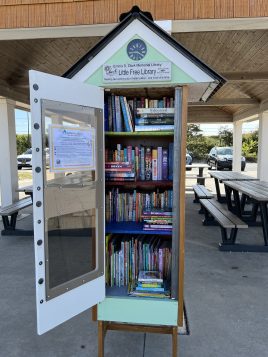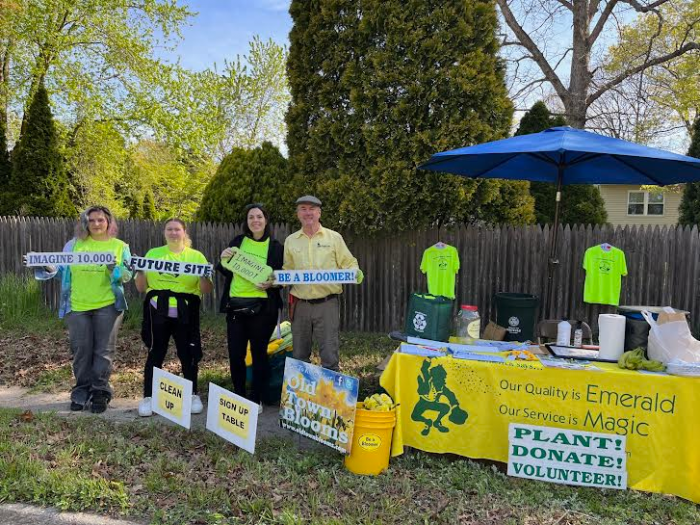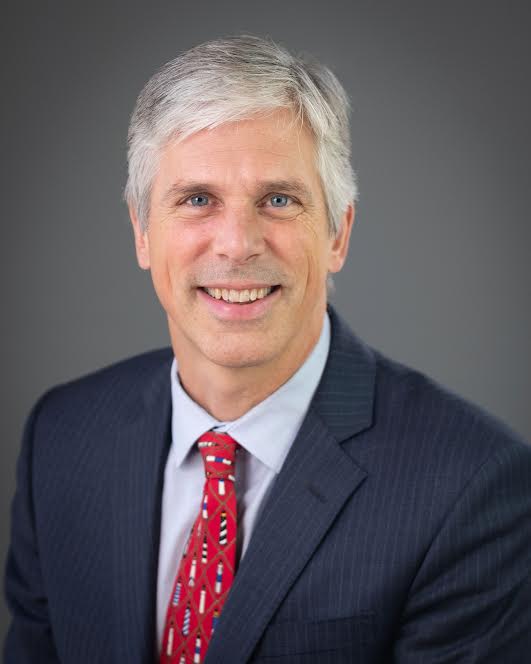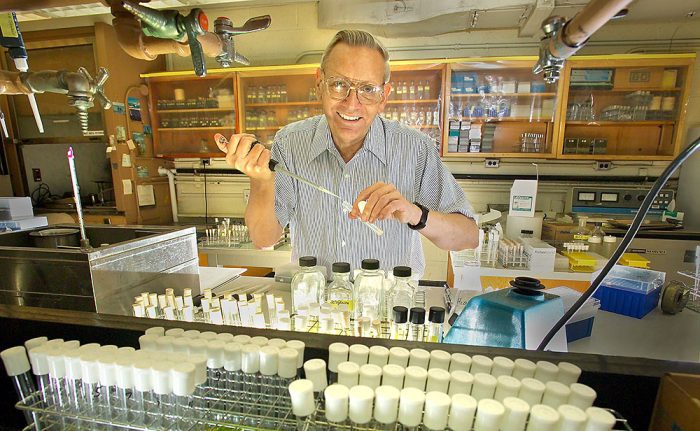Partnership Offers Microcredentials Through the National Alliance for Direct Support Professionals for Current and Aspiring Direct Support Professionals at SUNY Campuses Statewide
The New York State Office for People With Developmental Disabilities (OPWDD) and The State University of New York (SUNY) joined with Farmingdale State College and developmental disabilities service providers Community Mainstreaming Associates, Developmental Disabilities Institute, Epic Long Island, Family Residences and Essential Enterprises, Life’s WORC, The Center for Developmental Disabilities, Inc., and Viability today to celebrate the success of its Direct Support Professionals Microcredential Program. Officials were on hand to acknowledge 26 students from the first cohort who are graduating this month. Enrollment for a second cohort is happening now.
The SUNY Microcredential program, a partnership between The National Alliance for Direct Support Professionals, SUNY and OPWDD, provides training that leads to national certification in the distinct skills and competencies required of today’s direct support professionals. The Direct Support Professional Microcredential opportunity is being offered at 19 participating SUNY colleges throughout the state. Direct Support Professionals who are enrolled in the program report feeling empowered to make decisions and employ best practices on the job, while preparing to take the next steps in their careers.
NYS OPWDD Commissioner Kerri Neifeld said, “The response from DSPs who want to participate in this professional development opportunity has been tremendous and is a testament to what we know to be true – the field of direct support needs and deserves a career pathway that honors the skills and best practices that these professionals bring to their jobs every day. Thank you to our SUNY partner Farmingdale State, Chancellor King and the providers who are helping their employees to take these next steps in their career. New York State is a leader in this effort and DSPs who are earning credentials from the NADSP SUNY Microcredential Program should feel proud to be a part of this movement to professionalize the field.”
SUNY Chancellor John B. King, Jr. said, “SUNY is committed to increasing upward mobility for all New Yorkers and this program does just that. The high demand for the Direct Support Professionals Microcredential Program shows that more individuals, whether working in the field already or not, want to provide vital care to New Yorkers in need, and want to improve their skills at doing so. The success of the program has opened up more opportunities for DSPs across SUNY, including at Farmingdale State College, and I couldn’t be more excited.”
CEO of The National Alliance for Direct Support Professionals Joseph Macbeth said, “The direct support workforce crisis has been well-documented for decades. Direct support work is not easy and it’s certainly not a job that just anyone can do. It requires complex skills, adherence to ethical standards and impeccable judgment. Over the past few years, OPWDD has worked closely with the SUNY system to address these challenges by developing a comprehensive microcredential initiative. Now, prospective and incumbent direct support professionals can achieve college credit, national certification and financial assistance as they learn and demonstrate their direct support skills. The leadership at SUNY and OPWDD in this area is commendable.”
Laura Joseph, EdD, Senior Vice President and Provost, Farmingdale State College said, “Farmingdale State College is honored to be part of this joint initiative with OPWDD and SUNY to provide an educational opportunity for students to become Direct Support Professionals. The funding has allowed us to develop the curriculum for the Direct Support Professional I and II credential as well as the wrap-around support needed to help students complete the course of study. Students enrolled in the DSP I and II Microcredentials are frontline workers and serve as the backbone of the Human Services industry. These microcredentials empower these professionals and further legitimize the profession. Dr. Michael Figuccio, Chair of the Psychology Department, has been instrumental in launching this program with over 30 students in the first cohort.”
Supported through over $50 million in federal funding from the American Rescue Plan Act (ARPA), the Microcredential Program aims to assist direct support staff already working in the profession and those new to the developmental disabilities field in earning college credits that meet requirements for certification from The National Alliance for Direct Support Professionals. Students will be able to secure national certification and college credit toward a certificate, associate degree or bachelor’s degree. The grant program covers tuition, certification, fees, books and student support, and students can earn a one-time $750 stipend. Each participating SUNY campus is working with an OPWDD-operated or affiliated provider partner to help upskill incumbent workers or to provide internships for those new to the field.
Enrolled students not yet working in the developmental disabilities field will be offered work-based learning opportunities with OPWDD or OPWDD-certified service providers.
These programs build on Governor Kathy Hochul’s efforts to expand the direct service professional workforce and address worker shortages.
About SUNY’s Microcredential Program
This academic year, SUNY will offer nearly 700 microcredentials at 51 of its 64 campuses. Microcredentials are smaller, academic- and skills-focused credentials that can be completed in months, not years. SUNY’s program is designed to provide earners with immediate workforce-ready skills, knowledge, and experience, while also providing a pathway to additional credentials, certificates and degrees. Recognized with the inaugural Business Council of New York State Workforce Innovation Award in Higher Education, SUNY Microcredentials increase access to higher education by providing another pathway for New Yorkers to earn the credentials they need to meet their academic and career goals, all while collaboratively meeting the needs of New York businesses and industry.
About OPWDD
The New York State Office for People With Developmental Disabilities (OPWDD) provides high-quality person-centered supports and services to people with developmental disabilities, including intellectual disabilities, cerebral palsy, Down syndrome, autism spectrum disorders and other neurological impairments. OPWDD provides services directly and through a network of over 600 not-for-profit providers. OPWDD’s mission is to help people with developmental disabilities live richer lives that include meaningful relationships, good health, personal growth, and a home within their community. For more information, visit www.opwdd.ny.gov or connect with us on Facebook, Twitter, and Instagram.
About The State University of New York
The State University of New York is the largest comprehensive system of higher education in the United States, and more than 95 percent of all New Yorkers live within 30 miles of any one of SUNY’s 64 colleges and universities. Across the system, SUNY has four academic health centers, five hospitals, four medical schools, two dental schools, a law school, the country’s oldest school of maritime, the state’s only college of optometry, and manages one US Department of Energy National Laboratory. In total, SUNY serves about 1.4 million students amongst its entire portfolio of credit- and non-credit-bearing courses and programs, continuing education, and community outreach programs. SUNY oversees nearly a quarter of academic research in New York. Research expenditures system-wide are nearly $1.1 billion in fiscal year 2022, including significant contributions from students and faculty. There are more than three million SUNY alumni worldwide, and one in three New Yorkers with a college degree is a SUNY alum. To learn more about how SUNY creates opportunities, visit www.suny.edu.
About Farmingdale State College
Farmingdale State College offers 46-degree programs focused on emerging, high-demand, and relevant careers to help prepare the next generation of leaders in technology, engineering, business, healthcare, science and the arts. With nearly 10,000 students, FSC is SUNY’s largest college of applied science and technology. More than half of our graduating seniors leave debt-free and 82% are employed six months after graduation or enrolled in graduate school. FSC is home to Broad Hollow Bioscience Park, which supports the development of biotech start-up companies and partners with surrounding businesses and research institutions along the Route 110 Business Corridor. Our engaging student experience, highly inclusive campus and sustained commitment to accessibility, affordability, and student support, helps make FSC one of the best values in higher education.
Photo of the announcement at Farmingdale State College attached, credit NYS OPWDD.























